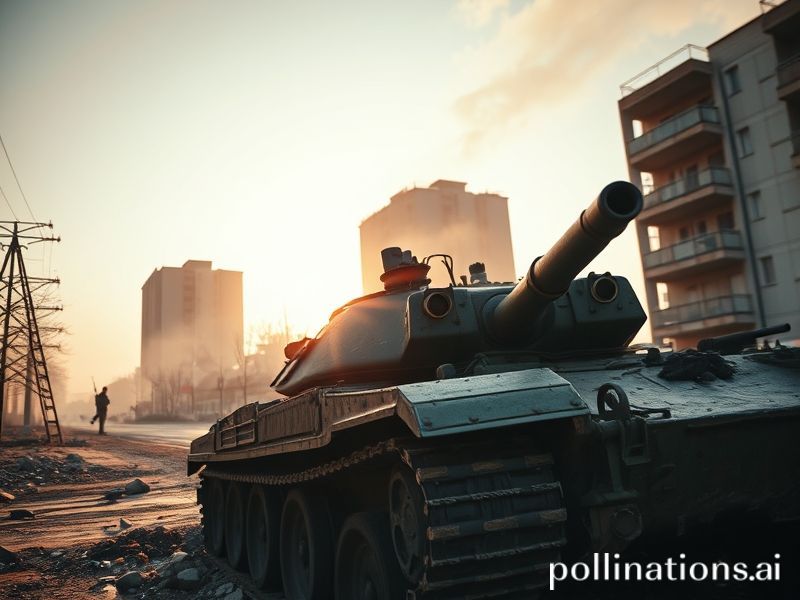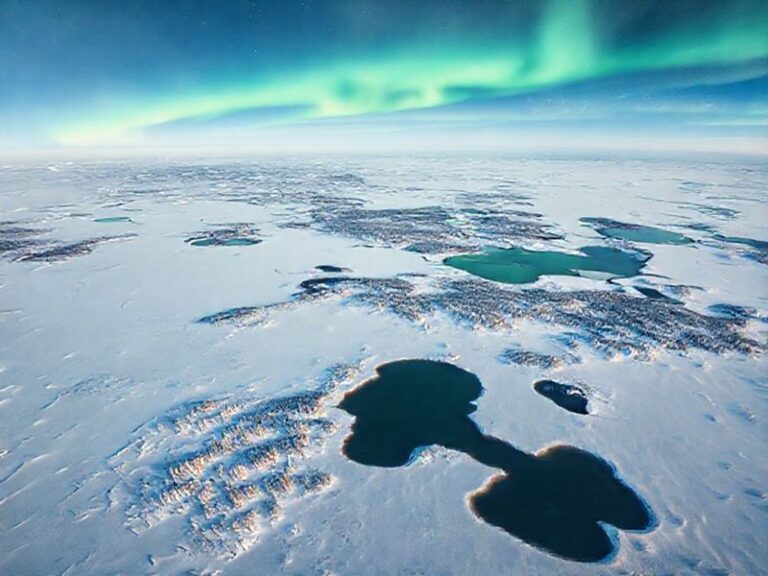From Borscht to Ballistic Missiles: How a ‘Regional’ War Became Everyone’s Problem
Moscow, February 2024 – Somewhere between the borscht and the ballistic missiles, the planet keeps turning, apparently unaware that two ex-Soviet neighbors have turned the European breadbasket into the world’s biggest live-fire TED Talk on “How Not to Run a Land War.” Two years in, the Russian invasion of Ukraine has become less a regional spat and more a planetary mood ring: the longer it drags on, the deeper the bruise-colored hues on every continent’s economic, political, and moral complexion.
From a strictly cosmic perspective, the war is a modest affair—only 600,000-odd square kilometers of real estate exchanging artillery greetings. Yet, like a poorly managed Tinder date, it has managed to ghost entire supply chains, spike every central banker’s cortisol levels, and persuade formerly pacifist nations that maybe—just maybe—tanks are the new mindfulness app. Germany, which spent the post-war decades cultivating guilt the way the Swiss cultivate chocolate, suddenly discovered a taste for heavy metal and re-exported its angst in 120-millimeter increments. Meanwhile, Japan—birthplace of kawaii culture and Article 9 pacifism—quietly rebranded aircraft carriers as “multi-purpose destroyers,” because nothing says self-defense like a flight deck capable of launching F-35s into Vladivostok’s airspace.
Across the Atlantic, Washington continues its time-honored tradition of throwing money at problems that can’t be solved by throwing money. Congress debated aid packages with the solemnity of a poker game where the chips are measured in Patriot missiles. The resulting spectacle—equal parts democracy pageant and legislative cage fight—has gifted late-night comedians enough material to keep them relevant until the heat death of the universe. And still, the Ukrainian grid flickers on, powered by a coalition of diesel generators, Elon Musk’s mood swings, and sheer human spite.
In the Global South, the war is treated less like a moral crusade and more like a buffet line: everyone grabs what suits their palate. India buys discounted Russian crude, quietly refines it into products Europe can’t admit it wants, and earns enough rupees to fund another moonshot—literally. South Africa hosts naval exercises with Moscow and Beijing, then shrugs when Western diplomats clutch pearls. Brazil’s president, oscillating between statesman and stand-up comic, suggests Ukraine could end the war by simply “not provoking” Russia, a diplomatic insight roughly as useful as telling a burglary victim to “try owning less stuff.”
Energy markets, once the staid realm of spreadsheets and men in boring suits, now behave like crypto bros after three espressos. European governments, having spent decades lecturing the world on green virtue, suddenly reclassified coal as “transitional décor” and raced to build LNG terminals faster than suburban dads assemble IKEA furniture on Christmas Eve. The resulting price shock fertilized inflation everywhere from Lagos bakeries to Tokyo ramen counters, proving once again that nothing unites humanity like collective wallet pain.
And then there’s the nuclear shadow, that ultimate party crasher. Every time the Kremlin hints at its silo-based mood lighting, Switzerland’s bunkers feel a little less retro-chic and a little more… practical. The rest of us refresh Doomsday Clock apps the way previous generations checked sports scores, comforted by the knowledge that, should the worst occur, the ensuing nuclear winter will at least solve global warming.
Conclusion: In the grand bazaar of geopolitics, the Russo-Ukrainian war is the stall everyone passes, eyes averted, yet somehow buys something from anyway. Whether it’s pricier bread, a new defense budget, or the creeping realization that the post-Cold-War order was just a prolonged intermission, the receipts keep arriving in every mailbox on Earth. History may one day file this conflict under “regional miscalculation,” but for now it remains the world’s most expensive reminder that when empires catch colds, continents sneeze. And as always, the loudest sneezes come from the cheapest seats.







